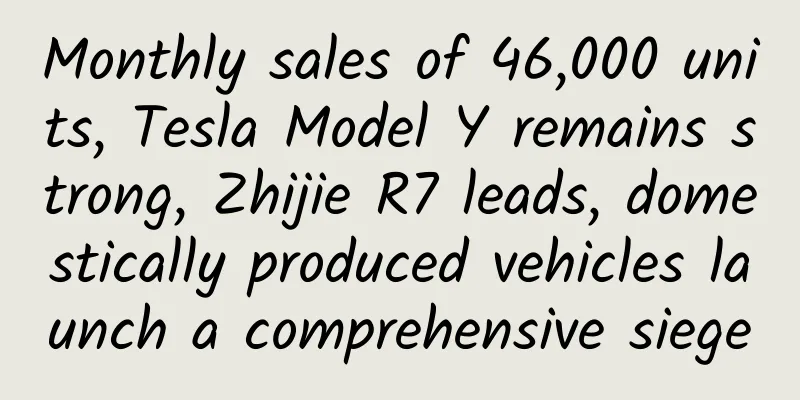Why are there no affordable ultrabooks?

|
When Intel announced the new concept of "Ultrabook" in 2011, the traditional PC industry seemed to see a new dawn. Unfortunately, the sales of traditional computers, including laptops, have been declining year by year, and ultrabooks do not seem to play their role. The reason is actually very simple: price. Due to the rise of mobile computers such as tablets and smartphones, the forms of access to the Internet are obviously more diverse and lightweight, so users' demand for traditional PCs has decreased. Even if they still exist, they are more inclined to choose low-end products below 5,000 yuan. However, since ultrabooks often use thin and light designs and expensive materials, the cost has remained high. Although Intel promised to launch cheaper models with PC manufacturers, it has not yet appeared. So, what happened? The low-priced ultrabooks with good quality and low price have not yet appeared We have been waiting for the price of ultrabooks to drop, but we have not been able to do so. From 2011 to now, expensive ultrabook series products such as Asus Zenbook series and Acer S7 series, although the latest models have reduced some R&D costs due to the unchanged mold part, the price is still high. If you turn to some relatively low-priced ultrabooks, you have to endure outdated hardware such as low-resolution screens. Of course, some PC manufacturers have also tried to break this situation, but with little success. For example, Lenovo once launched an Ideapad U310 in 2012, which has a portable body and a reasonable price. It once fell to around 4,000 yuan, but it has disappeared today. Although the subsequent U430P tried to provide similar value, it lacked a touch screen and its hardware configuration did not actually meet Intel's current definition of ultrabooks. Manufacturers complained about low profits Earlier this year, Acer's CEO made it clear that "entering the ultrabook market was one of the company's biggest strategic mistakes." Why do you say that? Because Acer has invested a lot of R&D costs, but its ultrabooks have never been sold in large quantities, so even if you think they are priced very high, the manufacturer has not made a profit. On the one hand, manufacturers want to sell low-priced ultrabooks, but due to standard restrictions, costs are obviously out of control. Obviously, the ultrabook standard is not the "last pot of gold" for the traditional PC industry. In addition to the disappointing market share, even if the price of ultrabooks has been reduced year after year, they still cannot gain the recognition of users, because users need a personal computer that looks good and is affordable. To some extent, Apple's Macbook series can even meet similar needs, because they are cheaper than some ultrabooks and have a high premium selling point. Blame Intel: Pursuit of high profits Intel undoubtedly plays the role of "villain" in this phenomenon, because it is the standard setter and refuses to accept reality. Obviously, as a platform provider with an almost monopoly, Intel cannot accept low profit margins, so it has strict control over the composition of the ultrabook platform, which has created strict entry standards: thickness less than 18mm, weight less than 1.5kg fast startup (requirement for hard disk media) battery life more than 5 hours using Intel Core i series processors In addition, even if PC manufacturers purchase its processors and other components in large quantities, they have not obtained a more favorable price. For example, the entry-level Core i5-4200u processor in the ultrabook platform costs about $281 (about RMB 1,743) when purchased separately, and $250 (about RMB 1,550) when purchased in bulk by PC manufacturers, which is obviously not a good deal; but Intel hopes that PC manufacturers will sell ultrabooks at low prices, which means sacrificing the interests of PC manufacturers. This form of cooperation is obviously not reasonable. In this case, PC manufacturers cannot use low-cost hardware, and they also need to take into account ultra-thin design and long battery life, and the cost cannot be reduced. Even though Intel said that ultrabooks below 4,000 yuan will appear at the end of 2014, from the current situation, this is obviously wishful thinking. The dead end of ultrabooks Therefore, even in 2014, we have not seen the emergence of low-priced ultrabooks. On the other hand, the development momentum of tablet computers is also getting faster and faster, and laptops need to be not only thinner, but also more competitive in price. So what are the solutions for PC manufacturers? One is the 8-inch Windows 8.1 tablet promoted by Microsoft. Their prices are generally below 3,000 yuan and they run the full Windows 8.1 system. However, due to the product design being closer to tablets and the use of low-power Atom processors, their usage and performance cannot completely replace notebooks as the main office equipment. The other is the lightweight notebook represented by HP X360. Since the hardware configuration is similar to that of Win 8.1 tablets (Atom processor), even if it adopts a notebook appearance design, it is still not an ultrabook product. The performance and configuration are relatively low-end, but the price is very attractive, below 3,000 yuan. Obviously, Intel has not taken any action yet, but has chosen to let PC manufacturers fend for themselves. If you want to truly popularize ultrabooks, reducing the price of processors or launching low-priced processors, appropriately relaxing the composition structure of ultrabooks and reducing unnecessary configurations (such as touch screens, etc.) are the effective solutions. Before this, low-priced ultrabooks were obviously in a dead end. As a winner of Toutiao's Qingyun Plan and Baijiahao's Bai+ Plan, the 2019 Baidu Digital Author of the Year, the Baijiahao's Most Popular Author in the Technology Field, the 2019 Sogou Technology and Culture Author, and the 2021 Baijiahao Quarterly Influential Creator, he has won many awards, including the 2013 Sohu Best Industry Media Person, the 2015 China New Media Entrepreneurship Competition Beijing Third Place, the 2015 Guangmang Experience Award, the 2015 China New Media Entrepreneurship Competition Finals Third Place, and the 2018 Baidu Dynamic Annual Powerful Celebrity. |
>>: China's Denza to the world's Denza! Denza's overseas expansion to accelerate in 2023
Recommend
iOS 14 Beta version crashes: so many bugs that it makes me want to cry
A few days ago, Apple held the WWDC2020 Global De...
How much does it cost to be an agent of a steel mini program in Tongchuan?
What is the price of Tongchuan Steel Mini Program...
"Douyin Commercial IP Core Practice Course" takes you to play with algorithms, traffic, content, architecture, and monetization
"Douyin Commercial IP Core Practice Course&q...
Information flow methodology helps you reduce costs by 40%!
There are a lot of form leads, but few transactio...
The hot-selling "bare leg artifact" is actually a "modern torture device"? A 23-year-old girl got paronychia from being strangled...
The cold wind is blowing You who love beauty Have...
How to use multiple windows on Android? An Android multi-window tool with a size of only 1M
We know that Android can handle multiple tasks at...
What do FM and AM mean for radio signals?
We often hear on the radio: FM 96.6 MHz, AM 927 k...
How to conceive a marketing plan for a new product?
This is a very common scenario. When you take on ...
Deep understanding of pathfinding algorithms in games
If you have played MMOARPG games, such as World o...
Samsung vs. Google: Who wins?
The American technology blog TheVerge published a...
Scientific Q&A about the new coronavirus: Do you know about Wuhan pneumonia?
1. How long can the new coronavirus survive in a ...
In-depth analysis | How to effectively control promotion costs and improve ROI
Search engine marketing has been carried out in m...
Introduce Gradle dependencies in Android projects like npm
[[206604]] 1. Introduction As an Android develope...
How to use information flow advertising to increase APP downloads?
How to use information flow advertising to increa...
Customized video of a foreigner shouting "Happy Birthday"! Creatively customized video of a black African child holding a sign to wish a happy birthday!
Our African team is professional in shooting bles...









